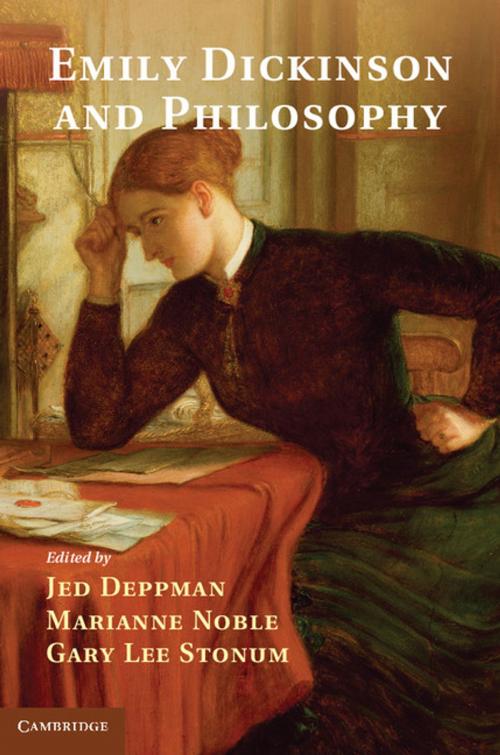Emily Dickinson and Philosophy
Fiction & Literature, Literary Theory & Criticism, American, Nonfiction, Religion & Spirituality, Philosophy| Author: | ISBN: | 9781107357815 | |
| Publisher: | Cambridge University Press | Publication: | August 19, 2013 |
| Imprint: | Cambridge University Press | Language: | English |
| Author: | |
| ISBN: | 9781107357815 |
| Publisher: | Cambridge University Press |
| Publication: | August 19, 2013 |
| Imprint: | Cambridge University Press |
| Language: | English |
Emily Dickinson's poetry is deeply philosophical. Recognizing that conventional language limited her thought and writing, Dickinson created new poetic forms to pursue the moral and intellectual issues that mattered most to her. This collection situates Dickinson within the rapidly evolving intellectual culture of her time and explores the degree to which her groundbreaking poetry anticipated trends in twentieth-century thought. Essays aim to clarify the ideas at stake in Dickinson's poems by reading them in the context of one or more relevant philosophers, including near-contemporaries such as Nietzsche, Kierkegaard and Hegel, and later philosophers whose methods are implied in her poetry, including Levinas, Sartre and Heidegger. The Dickinson who emerges is a curious, open-minded interpreter of how human beings make sense of the world - one for whom poetry is a component of a lifelong philosophical project.
Emily Dickinson's poetry is deeply philosophical. Recognizing that conventional language limited her thought and writing, Dickinson created new poetic forms to pursue the moral and intellectual issues that mattered most to her. This collection situates Dickinson within the rapidly evolving intellectual culture of her time and explores the degree to which her groundbreaking poetry anticipated trends in twentieth-century thought. Essays aim to clarify the ideas at stake in Dickinson's poems by reading them in the context of one or more relevant philosophers, including near-contemporaries such as Nietzsche, Kierkegaard and Hegel, and later philosophers whose methods are implied in her poetry, including Levinas, Sartre and Heidegger. The Dickinson who emerges is a curious, open-minded interpreter of how human beings make sense of the world - one for whom poetry is a component of a lifelong philosophical project.















